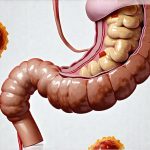Social anxiety is more than just shyness; it’s a pervasive fear of social situations where one might be scrutinized or judged negatively. This fear isn’t limited to the event itself but often extends to anticipatory anxiety – worrying for days, even weeks, beforehand about potential embarrassment or awkwardness. While many associate this anxiety with interactions and public speaking, its impact can extend far beyond psychological distress, manifesting physically in ways that significantly disrupt daily life. One frequently overlooked area affected by social anxiety is digestion, particularly during meals in public settings. The physiological response to perceived threat can hijack the digestive system, creating a range of uncomfortable symptoms from nausea and stomach cramps to diarrhea or constipation – essentially turning a simple act like eating out into a source of intense dread.
The connection between mental health and gut health is increasingly recognized by researchers. This isn’t merely anecdotal; there’s growing evidence of a bidirectional relationship known as the “gut-brain axis.” The nervous system, hormones, immune system, and even the microbiome (the trillions of bacteria in our digestive tract) are all interconnected. When we experience anxiety, the body releases stress hormones like cortisol, which can directly impact gut motility, inflammation, and bacterial balance. For someone with social anxiety, this effect is amplified during public meals, where heightened self-consciousness and fear of judgment create a powerful physiological response that interferes with normal digestive processes. This article explores how social anxiety specifically affects digestion during meals in public settings, the underlying mechanisms at play, and strategies for coping with these challenges. Understanding hormonal changes can also shed light on digestive sensitivities.
The Physiological Cascade: Anxiety’s Impact on Digestion
When faced with a perceived threat – like eating in front of others – the body initiates the “fight-or-flight” response. This is an evolutionary mechanism designed to prepare us for immediate action. However, this response isn’t conducive to optimal digestion. Instead, blood flow is diverted away from non-essential functions like digestive processes and redirected towards muscles, heart, and lungs. The sympathetic nervous system kicks into high gear, leading to a cascade of physiological changes that directly interfere with the digestive system. These include:
- Reduced Gastric Motility: The stomach slows down its emptying rate, increasing the risk of bloating, nausea, and discomfort.
- Altered Intestinal Permeability: Stress hormones can weaken the gut lining, leading to increased intestinal permeability (often called “leaky gut”). This allows undigested food particles and toxins to enter the bloodstream, potentially triggering inflammation and further digestive issues.
- Changes in Gut Microbiome: Chronic stress and anxiety are linked to imbalances in the gut microbiome, reducing the diversity of beneficial bacteria and increasing the population of harmful ones. A disrupted gut can worsen these effects.
Essentially, the body prioritizes survival over digestion, making it incredibly difficult to comfortably process food in a socially stressful environment. This can create a vicious cycle: fear of digestive symptoms leads to increased anxiety about eating in public, which then exacerbates the physical symptoms themselves. The anticipatory anxiety is often worse than the actual event because the physiological response begins before the meal even starts.
Public Dining and Amplified Anxiety
Eating in public presents unique challenges for individuals with social anxiety. It’s not just about the food; it’s about being observed while eating, potentially making mistakes (spilling something, choosing the “wrong” item on the menu), or feeling judged by others. This heightened self-consciousness amplifies the physiological response described above. Consider these common anxieties associated with public dining:
- Fear of Being Watched: The constant awareness that you are being observed while eating can be intensely stressful.
- Concern About Table Manners: Worrying about proper etiquette and avoiding social faux pas.
- Anxiety About Food Choices: Feeling pressured to order “healthy” or socially acceptable food items, fearing judgment based on your selection.
- Difficulty Conversing: The focus shifts from enjoying the meal and conversation to managing anxiety and suppressing physical symptoms.
These anxieties can lead to a state of hypervigilance, where individuals are constantly scanning their environment for potential threats and focusing on internal sensations (e.g., stomach rumbling, heart racing). This intense focus further disrupts digestion and contributes to the overall discomfort experienced during public meals. The result is often avoidance—choosing not to eat in social settings at all, or isolating oneself during mealtimes. Learning emotional regulation can be a helpful step towards managing these anxieties.
Coping Strategies for Digestive Distress
Navigating mealtime anxiety requires a multi-faceted approach that addresses both the psychological and physiological aspects of the problem. There’s no quick fix, but with consistent effort and support, it’s possible to manage symptoms and regain control.
- Mindfulness & Deep Breathing: Practicing mindfulness techniques, such as deep diaphragmatic breathing, can help calm the nervous system and reduce anxiety levels. Focusing on your breath brings you into the present moment, breaking the cycle of anxious thoughts. Before a meal, take several slow, deep breaths to signal to your body that it’s safe.
- Gradual Exposure: Start with less stressful social eating situations – perhaps having lunch with a close friend or family member in a quiet setting. Gradually increase the complexity of the situation (e.g., dining at a busier restaurant) as you become more comfortable. This is a form of exposure therapy, helping to desensitize yourself to the anxiety-provoking stimuli.
- Dietary Considerations: While not always necessary, some individuals find relief by avoiding trigger foods that exacerbate digestive symptoms, such as caffeine, alcohol, or highly processed foods. Focusing on easily digestible foods can also be helpful.
Addressing Anticipatory Anxiety
The fear before the meal often overshadows the actual experience. Here’s how to tackle anticipatory anxiety:
- Cognitive Restructuring: Identify and challenge negative thought patterns associated with public dining. For example, if you believe “Everyone will notice if I spill something,” ask yourself: Is that realistic? What’s the worst that could happen? Are there alternative ways to think about this situation?
- Visualization Techniques: Instead of dwelling on potential disasters, visualize a successful and enjoyable meal. Imagine yourself feeling calm, confident, and comfortable in the social setting.
- Preparation is Key: Plan your meal in advance – choose a restaurant with a menu you’re comfortable with, decide what you’ll order, and even practice conversation starters. Having a plan can reduce uncertainty and anxiety.
Seeking Professional Support
Living with social anxiety and its impact on digestion can be incredibly challenging. Don’t hesitate to seek professional help if these strategies aren’t enough. A therapist specializing in anxiety disorders can provide evidence-based treatments such as:
- Cognitive Behavioral Therapy (CBT): CBT helps identify and modify negative thought patterns and behaviors that contribute to anxiety.
- Exposure Therapy: A type of CBT that involves gradually exposing yourself to feared situations, like public dining, in a safe and controlled environment.
- Medication: In some cases, medication may be helpful for managing anxiety symptoms, but this should always be discussed with a healthcare professional. You might also consider how hormonal contraceptives could play a role in your anxieties.
Remember, you are not alone, and there is help available. Taking proactive steps to address both the psychological and physiological aspects of social anxiety can significantly improve your quality of life and allow you to enjoy meals in public settings without constant fear and discomfort. Improving your posture during and after meals can also help reduce discomfort. Finally, consider how fermented foods might impact your digestive system.


















